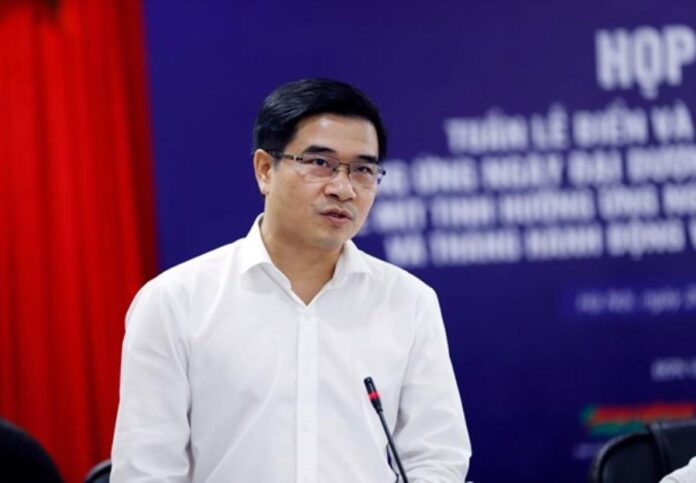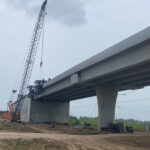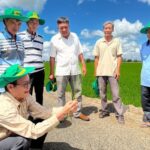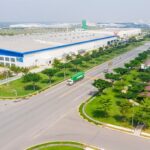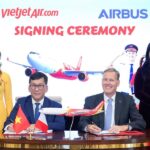In an interview with the Vietnam Economic Magazine/VnEconomy on the Strategy for Marine Economic Development, Mr. Nguyen Duc Toan, Director of the Vietnam Sea and Island Administration, Ministry of Agriculture and Environment, emphasized: “After the merger, there will be 34 remaining provinces and cities, 21 of which are expected to be coastal. This increases the proportion of coastal localities from 28/63 (44%) to 21/34 (nearly 62%), indicating a restructuring of the national development space along the coastal axis. The sea has truly become a new driving force for economic growth.”
The Ministry of Agriculture and Environment will be organizing Vietnam Sea and Island Week 2025. Can you give us an overview of this program?
Vietnam Sea and Island Week 2025 marks a strong shift in awareness and action, being the first time it is linked to many important resolutions of the Central Committee. It clearly demonstrates the role of the sea as a driving force for sustainable economic development. With a focus on developing the marine economy while protecting the ocean, this year’s theme, “Green Technology for a Sustainable Ocean,” is not just a slogan but a call to action, connecting and mobilizing domestic and international resources to address challenges related to marine resources, environment, and biodiversity.
Additionally, this year’s event is part of the implementation of Resolution 57, emphasizing the importance of placing innovation and technology at the center of the development of a green marine economy. It serves as a reminder that while development is inevitable, protecting the ocean is imperative, as it is the final link that bears the brunt of human activities.
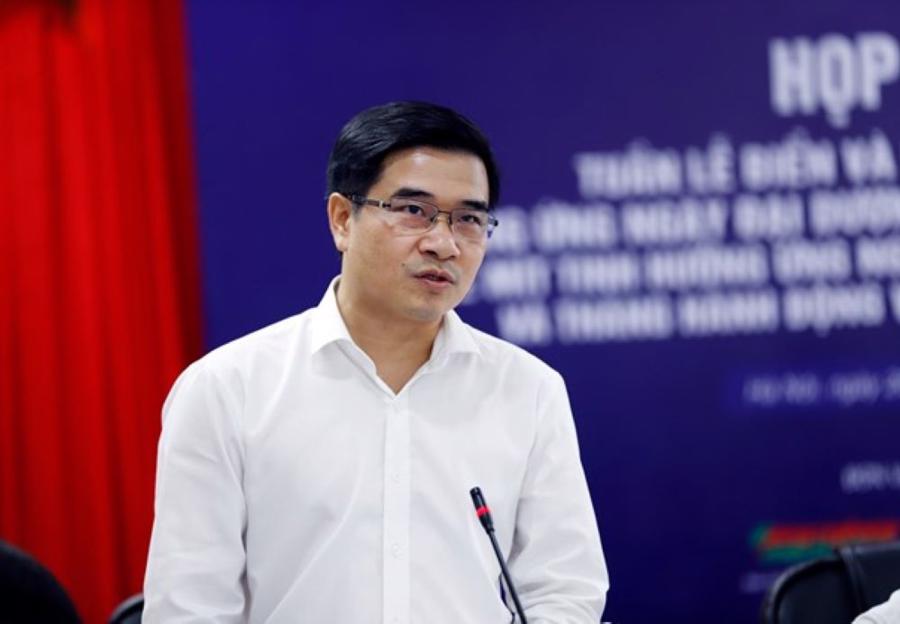
Vietnam Sea and Island Week 2025 will be officially launched in Quang Binh province, with a series of key events taking place on June 6, themed “Green Technology for a Sustainable Ocean.” The event is organized by the Ministry of Natural Resources and Environment, in coordination with local authorities and related ministries and sectors, to commemorate World Ocean Day.
The program consists of three main activities: a thematic workshop, a field trip, and a national rally. The workshop, themed “Institutions, Planning – Opportunities for Developing a Green Marine Economy,” will bring together experts, policymakers, businesses, and international organizations. The delegates will focus on discussing institutions, planning, and investments in new marine economic sectors, notably offshore wind power.
The application of technologies such as artificial intelligence, environmental sensors, digital solutions for waste tracking, and ecological monitoring will enhance management effectiveness, reduce plastic pollution, and promote environmentally friendly models for fisheries, tourism, and maritime transportation development.
Alongside, there will be a workshop on “AI Application in Journalism, Communication, Marine Cultural Environment, and Marine Tourism Development,” featuring presentations on AI utilization in marine environmental protection communication and plastic waste reduction.
Vietnam Sea and Island Week 2025 will also feature a trade fair for marine economic products and a photo contest, “Journalism with Vietnam’s Sea and Islands,” spreading the message of ocean conservation to the community. It especially emphasizes turning awareness into specific actions in daily life, such as waste sorting, reducing single-use plastic, rational coastal exploitation, and aquatic resource restoration.
How can we develop the marine economy while keeping the impacts on the sea under control?
Currently, the Spatial Planning for the Sea and the Integrated Coastal Zone Management Planning have been approved. These plans provide a holistic approach and focused solutions to address the conflicts and overlaps between economic development and ocean conservation and protection.
“Developing the marine economy requires transforming the Party’s political perspective into systematic policies, planning, and propaganda. This involves institutional solutions, planning, state management policies, and awareness-raising to unite the community.”
There are four key breakthroughs: developing green logistics infrastructure, promoting sustainable tourism, fostering a green and sustainable marine economy, and harnessing blue energy. The Spatial Planning for the Sea, approved by the National Assembly, has created a comprehensive spatial framework. The merging of provinces also expands the space, opens up ecosystems, and shapes biological corridors to holistically approach the world’s leading practices.
When formulating the Spatial Planning for the Sea, Integrated Coastal Zone Management Planning, or Aquatic Resources Planning, the competent authorities must assess the current state of Vietnam’s marine ecosystem and environment, identify potentials and strengths, and formulate views, goals, tasks, and solutions. To prove ecosystem degradation, clear bases for comparison and specific evidence are necessary. In reality, once there is an impact on the sea, even with a green marine economy, nature in that area will be affected.
The question is how to keep these impacts within controllable limits to harmonize economic development and environmental protection and ecological conservation. This is the fundamental principle in all strategies, projects, and plans. Managing illegal exploitation of marine resources remains a concern for management agencies, and solutions will continue to be sought. It is essential to recognize that success in this regard cannot be achieved overnight.
What are the key solutions to developing a sustainable marine fisheries economy?
The Ministry of Agriculture and Environment has advised the government to issue plans to protect and exploit aquatic resources, clearly orienting 27 marine protected areas, 149 areas in the sea, and 119 inland areas for protecting aquatic species’ spawning and juvenile habitats.
“The Spatial Planning for the Sea, approved by the National Assembly, has created a comprehensive spatial framework. The merging of provinces also expands the space, opens up ecosystems, and shapes biological corridors to holistically approach the world’s leading practices.”
For fisheries exploitation, we aim for a maximum of 83,600 fishing vessels to reduce overexploitation. In terms of aquaculture, applying green technology is considered a breakthrough for carbon credit sales. The fisheries sector is focusing on directing seaweed farming and ecosystem restoration.
Additionally, there is a project to expand and establish new marine protected areas and aquatic resource conservation areas to restore marine ecosystems by 2030, ensuring that the area of marine and coastal protected areas reaches 6% of Vietnam’s natural sea area. The Spatial Planning for the Sea incorporates four breakthroughs and five integrated tasks from various sectoral plans. These are crucial for guiding the fisheries sector, especially in ecosystem restoration.
The competent authorities of the Ministry of Agriculture and Environment, notably the Directorate of Fisheries and the Fisheries Surveillance, have developed a program with a socialization orientation in the restoration process. This breakthrough engages businesses in conservation amid a context of streamlining the apparatus and saving costs.
“VNC Group’s Powerhouse: Trí Việt Investcons’ Asserted Ascendancy”
For almost two decades, VNC Group, a diversified investment enterprise, has been striving to establish its position as a pioneer in innovation and sustainable development. With a steadfast commitment to bringing tangible value to its customers, partners, and the community, VNC Group is dedicated to forging ahead and making a lasting impact.
The Landmark: Proudly Ranking Among Vietnam’s Top 30 Foreign-Invested Enterprises
The Landmark, a renowned leader in luxury serviced apartments and office rentals, is proud to announce its recognition as one of Vietnam’s Top 30 Outstanding Enterprises with Foreign Investment at the 24th Golden Dragon Awards.
The Evolution of Vietnam’s Industrial Zones: Positioning for the ESG and Digital Transformation Era
The Vietnam Industrial Park Development Forum 2025 focuses on pivotal topics such as sustainable industrial park development orientations for the 2025–2030 period, promoting infrastructure investment linked to socio-economic development, and establishing eco-friendly and smart industrial park models.
Vietjet Orders 20 A330neo Aircraft, Boosting Vietnam-France and Europe Economic Ties
Vietjet and Airbus signed a deal for 20 additional A330neo wide-body aircraft, witnessed by State President Luong Cuong and French President Emmanuel Macron.

